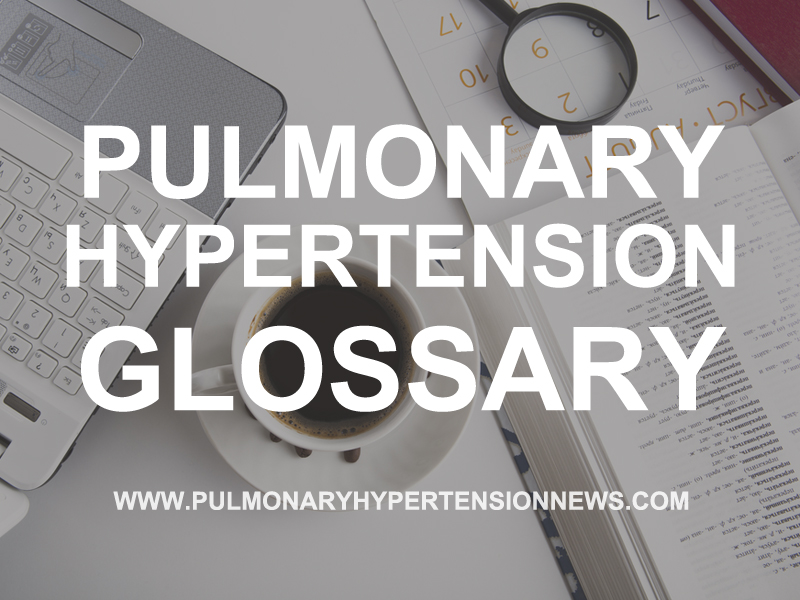Pulmonary Hypertension Glossary
Written by |

According to the Pulmonary Hypertension Association, these are some of the most important words on the PH glossary, starting with the letter “A”:
-A-
ACE inhibitors: ACE is an acronym for Angiotensin Converting Enzyme. ACE inhibitors are blood pressure medications that are prescribed by your doctor to treat systemic hypertension. Some examples of ACE inhibitors include Accupril®, lisinopril, and captopril. ACE inhibitors are not part of specific PAH therapy; they are used for systemic (“regular”) hypertension and/or left-sided (“regular”) heart failure.
Acute vasodilator challenge: During a right heart catheterization, your doctor may choose to administer medications to test whether your pulmonary arteries can vasodilate (relax and decrease the pulmonary artery blood pressure). A vasodilator challenge is used to help determine which medications may work best to treat your pulmonary arterial hypertension. There are specific criteria used to determine if you are “vasoreactive.”
Adcirca®: An FDA-approved oral treatment for PAH. Adcirca® is the brand name for tadalafil, which is the same chemical in the drug Cialis® (which is used to treat erectile dysfunction).
Ambrisentan: An FDA-approved oral treatment for PAH. Ambrisentan is the chemical name for Letairis®.
Angina: Chest pain or pressure; angina usually results from not enough blood or oxygen getting to the heart muscle. Typically, angina occurs in patients with coronary artery disease, but it can affect patients with many different types of heart disease including pulmonary arterial hypertension.
Angiogram: A type of catheterization that uses dye injected into the blood vessels to accurately evaluate whether or not the blood vessels are narrowed. Can be done for any vessel of the body.
These are just some of the words in the PH Glossary. Learn all of them here: https://bit.ly/1NDx3pb
Learn more about PH: https://bit.ly/1K4oewk
Note: Pulmonary Hypertension News is strictly a news and information website about the disease. It does not provide medical advice, diagnosis or treatment. This content is not intended to be a substitute for professional medical advice, diagnosis, or treatment. Always seek the advice of your physician or other qualified health provider with any questions you may have regarding a medical condition. Never disregard professional medical advice or delay in seeking it because of something you have read on this website.



